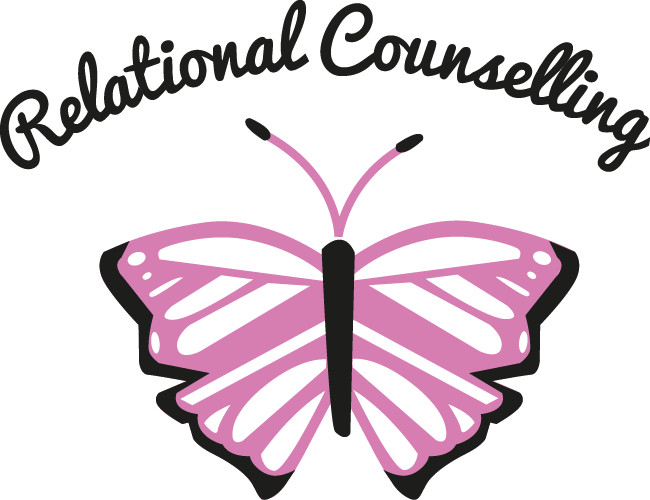People Pleasing
People pleasing can feel like second nature. You say yes when you want to say no, you apologise even when you’ve done nothing wrong, you avoid conflict at the cost of your own peace. Maybe you’ve done this for so long that you’re not even sure what you really want anymore. At first, people pleasing can feel like kindness, like keeping the peace. But over time, it drains you, leaving you resentful, unseen, and disconnected from yourself.
This guide is about coming back to yourself. It’s not about becoming selfish, unkind, or shutting people out. It’s about learning to stand in your own truth, to respect your own needs, and to allow others the dignity of respecting theirs. It’s about balance, and about courage; because change takes courage.
The steps that follow are simple but not always easy. They require awareness, reflection, and daily practice. But with time, you’ll see that pleasing yourself first isn’t about neglecting others; it’s the foundation for healthy, equal, and satisfying relationships.
Step 1: Be yourself
It's time to learn to be yourself and take responsibility for your own happiness!
Learning to be yourself takes time and a daily commitment to breaking your habits. Learning to be the best version of yourself in the most natural and harmonious way allows you to become your own best friend, build better resilience, and take better care of yourself.
For instance, you might suddenly realise your life feels like nothing but work and home. The things you once enjoyed have slowly slipped away, replaced with the excuse, “I just don’t have time.” Over time, you start to feel disconnected from yourself, you're stressed, drained, and unsure of who you are outside of your responsibilities. That’s why making space for what you enjoy matters, whether it’s a small daily skincare routine, a creative hobby, or simply something that makes you feel like you again.
This step is really about taking a natural interest in yourself and time to consider your own needs leads to a more balanced and happy life. This requires intentional actions and recalling your priorities. It involves scheduling time for yourself, learning to say no, not seeking approval from others, setting healthier boundaries, not apologising unnecessarily, and not making excuses.
Consider: What’s one way you can try to consider your own needs?
Step 2: Accepting others
- Seeing others as they are
An important next step is to truly accept others how they are. It would be an illusion to believe we can change others (when we’re married they’ll change, if I take on all the housework they’ll be less stressed, when I give them all my advice they’ll change) these are some of the things we may tell ourselves in hope of ‘’helping’’. But this often leads us away from reality. It’s important to ground ourselves back to reality.
Accepting others means we see them as they are, not as who we -want- them to be. That might feel uncomfortable at first. You may even ask yourself: what if I don’t like them or their actions once I see them clearly? Well, this becomes a moment for reflection. What do you want to do with what you see? Does it mean creating distance, redirecting the energy you place into them back into yourself, setting firmer boundaries, or even letting go?
- Letting go of rescuing
This does require letting go of that part of you that wants to ‘rescue’ others. We learn that caring isn’t rescuing. Caring is trusting someone else has the ability to look after themselves, and allowing them to grow in their own way. Whether that’s making mistakes, or learning on the way. Reflect on how you’ve learned the ways you have; was it because someone told you exactly what to do? Or did you learn this through your own choices, experiences, mistakes? By allowing others the same space, you give them respect, dignity and trust to grow into who the version they want to be.
Consider: What’s one step you can take to accepting others and avoiding ‘rescuing’ them?
Step 3: What is the price you are paying for people pleasing?
Have you ever considered what you truly want, without worrying about what others want or think? For example, your friends invite you to a Friday night gathering after a long week. They’ve been excited all week, but by Friday, you’re exhausted and know you need rest. Deep down, you worry they’ll see you as a bad friend if you cancel. Usually, you’d force yourself to go, telling yourself caffeine will help and that you’ll enjoy it once you’re there anyway. Then, you find yourself feeling irritable later on.
Considering your own needs is important. Constantly sacrificing yourself can lead to exhaustion or even burnout. Instead, you might gently explain that it’s been a tough week and that you need to prioritise rest. Alternatively, you might decide to set a boundary, such as going for just an hour, so you balance both your needs and theirs.
Often, people who people please say okay despite considering their own wants. They believe thinking of themselves is selfish and are afraid of upsetting others.
Well, what if you replaced selfishness with self-respect? You have nothing to prove to anyone but yourself. Of course, there are times in any relationship situation when compromise is essential, but it’s important to remember that compromise is not at the detriment to yourself. Until you learn to put your own needs first, others around you will know you as the person who always says yes. The cost of this is that you will build resentment, feel angry, unhappy, and eventually bitter. Learn, that compromise is not at the detriment to yourself.
Consider: What ways do you people please, and what are the consequences of this sort of behaviour in your relationships?
Step 4: Please yourself before you please others
Looking after yourself before others does not mean being inconsiderate, or rude. It does not mean ignoring other people’s needs. What it does mean is being attuned to your own feelings and learning how to negotiate with others about what you want. By being yourself, you step into any situation as an equal with others. For example, you might say to someone ‘’I’d love to help, but I need some time for myself tonight, could we try this tomorrow?’’ This shows honesty, balance and respect.
Think too about your real motivation when people pleasing. Often, without noticing, we take away the autonomy from the other in the name of ‘’helping’’. Is the action truly for them, or is it to ease something within us? Respecting others also means respecting their individuality, while staying true to our own.
One way to practice this is with small compromises. Imagine you want to go for a walk, but your friend wants to cycle. Instead of immediately giving in (people pleasing) or demanding your way, how might you balance so neither of you abandon your needs and both of you are seen?
Another technquie to try is each time you catch yourself wanting to invest more in others than in yourself, make an equal investment in you. If you think of giving advice to your partner, pause and ask: what advice do I need right now? Then act on that. Over time, this becomes second nature.
Consider: How can you look after yourself without worrying about what others want for you?
How Relational Counselling can help
Learning to stop people pleasing isn’t about suddenly becoming someone else; it’s about slowly coming back to yourself. It takes practice, reflection, and patience. These steps are a starting point, but change can feel difficult when old habits are deeply rooted.
This is where therapy can help. At Relational Counselling, we work integratively, which means we draw on different therapeutic approaches to meet you where you are. In sessions, we explore where your people pleasing patterns come from, how they show up in your relationships, and most importantly, how you can begin to shift them.
We offer a safe, non-judgemental space to practice boundaries, self-expression, and honesty; the very skills that support you in building healthier, more equal relationships outside of therapy.
If you recognise yourself in these steps and would like support in creating change, we’d be glad to walk alongside you.
-by Melissa and Elizabeth
If you need to talk to a psychotherapist


